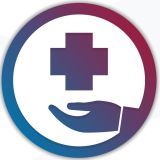In the US, a clinical medical assisting degree is a specialized program offered by vocational schools, community colleges, and some universities. This degree program focuses specifically on preparing students for a career as a clinical medical assistant. It provides comprehensive training in both the administrative and clinical aspects of medical assisting.
The curriculum of a clinical medical assisting degree program typically includes coursework and practical training in areas such as medical terminology, anatomy and physiology, pharmacology, medical office procedures, medical coding and billing, patient care techniques, laboratory procedures, and diagnostic testing. Students gain knowledge and skills in medical documentation, patient scheduling, medical billing software, vital signs measurement, specimen collection, medical assisting ethics, and infection control.
The program often includes hands-on clinical experiences, such as externships or practicum placements, where students work in real healthcare settings under the supervision of experienced medical professionals. These practical experiences allow students to apply their classroom learning in a real-world healthcare environment, interact with patients, and develop essential clinical skills.
Upon completion of a clinical medical assisting degree program, graduates are equipped with the necessary knowledge and skills to work as clinical medical assistants in various healthcare settings, including hospitals, clinics, physician offices, and outpatient care centers. They can perform a wide range of tasks related to patient care, including taking vital signs, assisting with medical examinations, performing basic laboratory tests, administering medications, and providing patient education.
It’s important to note that a clinical medical assisting degree is not always required to work as a medical assistant. Some individuals enter the field through shorter certificate or diploma programs, which focus more specifically on the clinical aspects of medical assisting. However, obtaining a clinical medical assisting degree can provide a more comprehensive and in-depth education, enhancing job prospects and opportunities for advancement in the field.
Schools
There are several well-regarded programs across the country that consistently receive positive reviews and have a track record of producing competent medical assistants. Here are a few notable programs:
- Everest College: Located in several states across the US, Everest College offers a Clinical Medical Assisting program that provides comprehensive training in both clinical and administrative skills. They focus on hands-on learning experiences and offer externship opportunities for real-world practice.
- Pima Medical Institute: With campuses in multiple states, Pima Medical Institute offers a Clinical Medical Assistant program that prepares students for entry-level positions in healthcare. Their program includes both classroom instruction and practical training in clinical procedures and administrative tasks.
- Herzing University: Herzing University has campuses in several states and offers a Clinical Medical Assisting program that combines classroom learning with hands-on experience. The program covers topics such as medical terminology, anatomy, physiology, pharmacology, and clinical procedures.
- Carrington College: Carrington College has campuses in multiple states and offers a Clinical Medical Assisting program that prepares students for a career in healthcare. The program includes a combination of classroom instruction, laboratory practice, and externship opportunities.
- Rasmussen College: Rasmussen College offers a Clinical Medical Assisting diploma program at various campuses across the US. The program covers medical terminology, clinical procedures, pharmacology, and administrative tasks. They also provide hands-on training in simulated lab settings.

